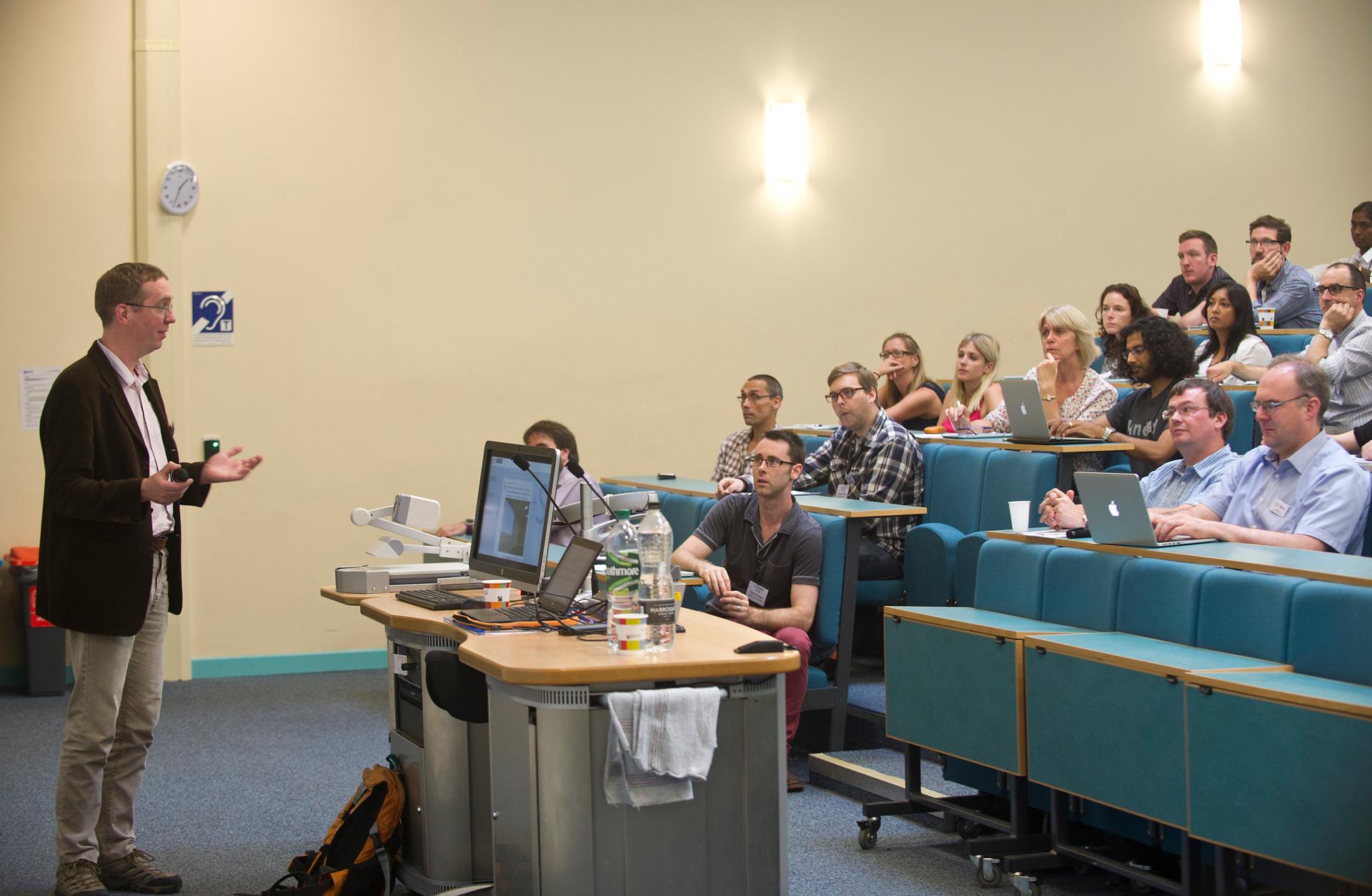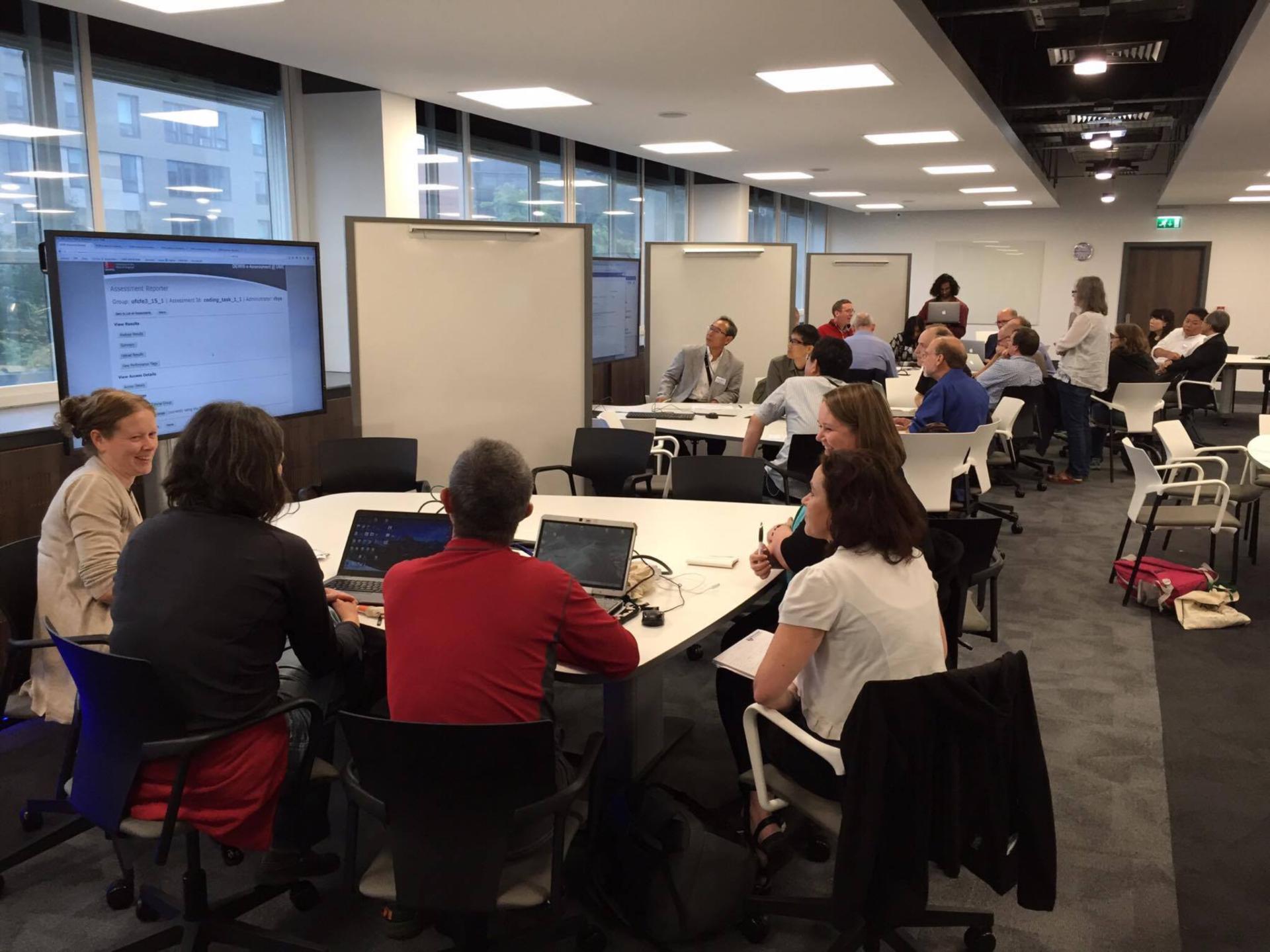Call for Speakers
The call for speakers has now closed. You can view the conference programme here.
There may still be opportunities to give lightning talks during the conference.
Read on for more information on the format of the conference.

Diversity
Our goal is to create an inclusive, respectful conference environment that invites participation from people of all races, ethnicities, genders, ages, abilities, religions, and sexual orientations.
We’re actively seeking to increase the diversity of our attendees and speakers, through our calls for proposals, and through dialogue with the communities we serve.
This is an ongoing process.
Here are some ways you can help us build a more diverse conference experience:
- Recommend appropriate speakers to the conference chairs. See the contact pages for information; you may also email us.
- Forward our call for proposals to relevant affinity groups with the message that we are looking for a diverse set of speakers.
- Suggest to potential speakers that they submit a proposal.
- To broaden participation, we’re offering mentoring and other support with your talk or workshop. If you would like to know more, please get in touch.
- Suggest ways that the onsite conference experience can be more welcoming and supportive, free from intimidation and marginalisation.
- Share your ideas and best practices for how we can realise our vision.
We value diversity in the communities we bring together, and we welcome your contributions to bringing balanced representation of the richness of our collective human experience.
All attendees are required to abide by the conference’s code of conduct.
Credit for the original version of this statement goes to O’Reilly Media, licensed under the Creative Commons Attribution 3.0 United States License.
Conference format
Over three days, EAMS 2018 will comprise a mix of talks and hands-on activities:
- Developer updates from the people responsible for popular mathematical e-assessment systems, detailing the latest features.
- Lightning talks on a variety of topics to do with e-assessment in mathematical disciplines.
- Hands-on workshops led by experts in a variety of e-assessment systems.
- Live demos led by experts in the field.
- Code sprints with the aim of adding features to systems, writing documentation, or creating material on a particular topic.
Compared to EAMS 2016, the emphasis this time is much more on enabling attendees to have a go at creating material, and getting an opportunity to share expertise directly.
We are asking for proposals for any of the activities described above.
Developer updates
We’d like the developers of three or four of the most popular mathematical e-assessment systems to give a brief summary of recent developments in their systems.
These sessions will be around 30 minutes each.
Lightning talks
The conference will feature a series of sessions comprising “short talks” on a selection of topics. Speakers will be given 5 or (when absolutely necessary) 10 minute slots to present something they’re doing, or experiences relevant to the topic. Feel free to offer presentations on as many topics as you have something to talk about. The speakers on each topic will form a panel for discussion at the end of each session.
Suggested topics:
- Accessibility
- Evaluation of e-assessment
- Institutional support
- High-stakes exams
- Implementation
- Distance learning
- Maths e-assessment outside HE
- Maths e-assessment outside maths
- Tips and tricks
There may be a handful of longer slots available for more in-depth talks, if the schedule permits.
Computer lab sessions
There might be e-assessment systems that you’ve only heard about from colleagues. EAMS is a chance to see those systems running, demonstrated by experts or even the developers themselves.
Computer lab sessions offer the opportunity for experts to demonstrate a system or technique, or a more hands-on workshop where attendees can try something out for themselves, led by an experienced facilitator.
Suggested computer lab sessions:
- Masterclasses - demonstrate a feature in an e-assessment system that you use.
- Assessment-writing clinics, answering attendees’ questions to do with a particular system.
- Getting started - lead attendees through the first steps in using a system that is new to them.
Sprints
A sprint is a chance for people to get together and work on creating something that they’ll all benefit from.
A number of people sit together and work independently or in pairs towards a common goal. The fact that everyone’s in the same place makes discussing problems and coming up with solutions much easier.
The sprint sessions will take place in the Herschel learning lab, where groups can gather round large tables with a central PC and display screen, while remaining connected to other groups in the room.

Suggested sprints:
- Add a feature to an e-assessment system.
- Improve the documentation for a system.
- Look at the accessibility of a system, recording suggested improvements on its issue tracker.
For those who don’t find a group they can contribute to, we’ll also be running a “what I want from e-assessment” board in the same room, where attendees can write down questions or problems on a whiteboard and discuss potential solutions with others.
Because the success of sprints very much depends on who is present on the day, we’re not looking for proposals in advance of the conference. On the morning of the first day, we’ll collectively identify groups that want to work together.
If you’ve got an idea for a sprint you’d like to run, make sure you bring anything that you’ll need to work on it, such as a laptop with the required development environment already set up.
Proposing a session
To propose a session at EAMS 2018, fill in our form. Submit the form once for each proposal; we will inform you at least a month before the conference which of your proposals have been included in the programme. If you have any questions, please email us.

